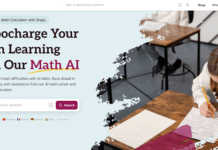
High school is over. You are off to college. Maybe you’ve even started. Yet once you made it in college, now what? This is a question a lot of graduates find themselves pondering over as they make their major decisions and even students well into their college years. College opens up so many opportunities and the possibilities seem endless.
You are an adult and can literally do anything. There is a strange level of comfort but also pressure in that freedom to choose to be anything. Your college studies set you up for your career that will be a part of the rest of your life journey.
When choosing a career as a college student it is necessary to take careful consideration. Refer to tips, tools, and resources. Examine your current climate and envision where you want to be in the future. As you do, here are some essential tips to keep in mind when choosing a career:
Build Up Transferable Skills
What are transferable skills you may ask? These are skills that can be applied in any line of work in any industry. Certain skill sets are required if you commit to a specialized line of work, such as neurosurgery. However, even with a specialized skill set, it’s prudent to develop transferable skills that can follow you wherever you go.
The future for some may not hold a consistent career path. You may change careers late in life, finding a new passion or interest. You may even retire from one career and decide to start another. When you do, having transferable skills will smooth the transition.
Don’t Be Afraid Try a Variety of Experiences
Experience is the spice of life and it will help you in deciding what career you want to pursue. Some people enter college knowing what they have wanted to do from three years old. Others are still undecided. Either is perfectly okay and both can benefit from trying a variety of experiences.
Experience allows you to grow your knowledge and skills. With more information and ability, you will have more life data to help in your decision-making process and best apply to your career.
Build Up Your Professional Experience
One of the kickers upon graduating college is having the education but not the experience to land jobs, even at entry-level. Most jobs will require at least 1 to 3 years of experience. During your college years or even right after graduation, it is important to take full advantage of programs such as internships, work-study, and volunteer work.
In building your professional experience, you set yourself up for success and gain a better understanding of the career path you have either chosen or now decided you may want to take a different direction from. Having professional experience will also further define your skill set and increase your competitive advantage.
Gain Technical Skills

Technology is the future and honing your technical skills will go a long way. Having expertise or skills in technology can be invaluable. In the future, many jobs are believed to be replaced by artificial intelligence (AI). Even now, the implementation of AI can be observed.
Being knowledgeable of this fact or increasing your knowledge of AI or other progressing areas of technology can ensure having future-proof careers.
Even if your line of work does not call for much or any technology, you can benefit from having it as a backup plan. Technical knowledge does not hurt. The future is tech. Make sure you are not left behind.
Create a Vision Board
It might seem childish or silly to create a vision board in college but creating a vision board is a great way to visualize what you want to accomplish in the future. Putting your vision down on paper or in a digital space can help you better articulate your career goals.
Even if you are uncertain about your career path, you should have an idea of how you want your future to look and feel. Visualizing how you want the future to be can help you align your choices to creating the future of your dreams.
Opportunities Are Open Doors. Don’t Let Them Close on You.
Do what you can to get your foot in the door. Opportunities create wonderful building places for knowledge, skills, and experience. Jumping on an opportunity can be the difference between jump-starting a 6-figure career and being set back by a decade.
Stay cognizant of what opportunities you can take part in. In doing so, remember to stay realistic. Opportunities can be limited, come with prerequisites, or just not be a good fit and this requires discernment for making the best choice for you.
Don’t Sleep on Resources
Just as numerous scholarships go unclaimed because they are not claimed or known, careers lie open because many do not know they exist or how to get started on the right career path. Resources are just at the tips of your fingers for you to use to get you headed in the right direction.
Utilizing the proper tools and resources can open opportunities for beginning your career path. Among the resources and tools available at colleges, college students can also delve into online resources such as LinkedIn and other career and business sites.
Consider Your First Passions

Growing up usually comes with the cost of forgetting our first loves or passions. It is a great time to get introspective when deciding on your career path. Try building lists such as likes and dislikes or pros and cons. Journaling is also a good technique here.
Additionally, refer to the singular question, “Why?” This will help you get down to the heart of why you want to do something. While easier said than done, thinking deeply will help you examine activities you enjoy, what they mean to you and how they can be reflected in your career decision.
Find What You Love and Do It
When you find what you love doing, you want to stick to it. Millions of people find themselves in careers that they detest and wonder how they got there twenty years later. You don’t want to regret not going after the thing that sets your soul on fire, resenting where your future position in life is.
While in college, there is the feeling to rush through and land a “good job.” Attentions get directed at the external aspects that aren’t necessarily that important. More people stay on jobs they intrinsically value and find meaning in their work. A traditional sounding good job does not work for everyone.
The same box does not fit everyone. Visually a good job looks nice but it may not be a good job for you. You will find your career more rewarding if you love it, get energized, and can see the impact of your contributions.
Make Genuine Connections
You will not ascend on your career path alone. You will need a strong support system. Professionally speaking, this would mean building your network, seeking mentors, and connecting with other professionals in the career you’re interested in. These connections will expand your horizons outside of your classroom.
Have a Plan A, Plan B, Plan C, and so on
Things do not always go as planned, so expect the unexpected. Without a plan, failure is sure, but with a plan, you increase your chances of success and jumping back in case of a setback. Careers change or become outdated, so have recourse on what you can turn to should anything happen.
Always Expect Change

Change is the only constant in life. Without change, everything would stay the same and not progress. This is true of careers, as well. Continuous improvement is a best practice in any job. As methodologies, techniques and tools, and business environments change, careers will be impacted.
Stay up to date on trends and new developments in your career and industry, and in the meantime, work on your skills to be ready to pivot food change at any moment.



